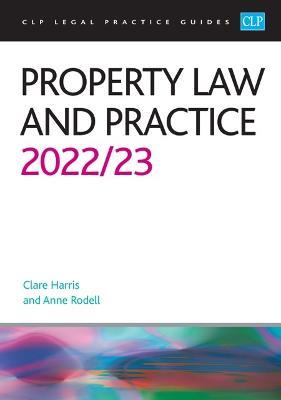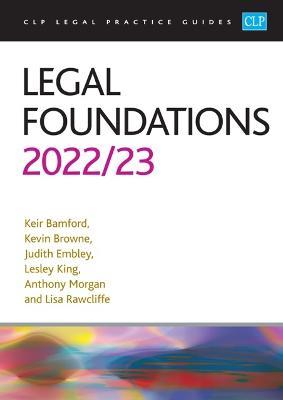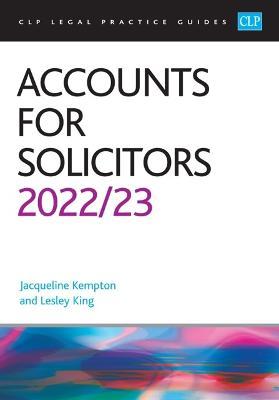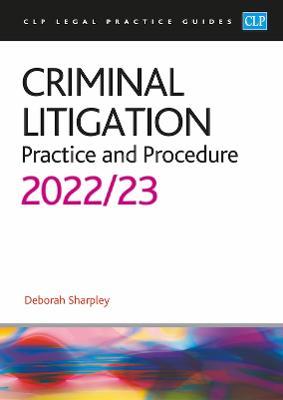🔴 DEFINITION: For the purposes of the Solicitors Qualifying Examination One (SQE1), Functioning Legal Knowledge means:
- Knowledge of the law of England and Wales required to practise competently as a solicitor, without reference to books or notes.
- Law assessed as it stands at the cut-off date (inclusive), being four calendar months prior to the date of the first assessment in the relevant assessment window, as determined for each exam sitting.
- Legal knowledge that is functional, in that it is tested through the application of legal principles to factual scenarios of the kind that may arise in practice.
- The ability to apply fundamental legal principles and rules appropriately and effectively at the level expected of a competent newly qualified solicitor.
- Knowledge focused on core principles and rules, and not on matters of detailed reference that a newly qualified solicitor would reasonably be expected to look up in practice.
- Assessed using single best answer multiple-choice questions, each with five possible answers, of which only one is correct.
- FLK2: FLK2: (1) Property Law and Practice; (2) Wills and the Administration of Estates; (3) Solicitors Accounts (examined in the context of Property Law and Practice and Wills and the Administration of Estates); (4) Land Law; (5) Trusts Law; (6) Criminal Liability and (7) Criminal Law and Practice.
- Weakest Areas: Property Practice, Wills & Intestacy
The table below includes a downloadable SQE syllabus for each of the subject areas in PDF format. This will be a helpful guide for you as you study and revise the law in preparation for the SQE assessments, specifically covering the SQE1 subjects.
⚠️ Important Notice About This Syllabus Download
Please note: The detailed SQE1 and SQE2 syllabuses provided here are for study support purposes only. They are based on the below SQE1 Assessment Specification. These downloads are supplementary learning aids and should not be relied upon as a substitute for the official SRA guidance. Check the current SRA assessment specifications!
📌 View the official SQE1 Assessment Specification (from 1 Sept 2025)
📌 View the official SQE2 Assessment Specification (from 1 Sept 2024)
These syllabi will be emailed to you — provided you subscribe to our email list. We send updates no more than once a month (if at all), and only when there are new versions available.
FLK2
SQE Prep & Practise (OUP)
Oxford University Press (OUP) has developed the online SQE Prep & Practise products that are a fully fledged learning platform rather than a traditional set of manuals. The content of the SQE Prep & Practise for Assessment 2 fully reflects the content of the SQE1 FLK2 assessment. In addition to study materials, this resource offers 200 MCQs for each subject, as well as performance-based explanatory feedback.
A separate chapter in the SQE Prep & Practise deals with ethics and professional conduct – that are assessed pervasively across the SQE1.
The SQE Prep & Practise can be purchased separately for Assessment 1 and Assessment 2, or as a complete package. The SQE Prep & Practise: Complete (£450 for 12 months’ access) includes six online manuals covering all SQE1 subjects, exam techniques, and a comprehensive bank of 1,200 sample questions designed to mirror the actual SQE1 format. This series of revision guides is available in both printed and electronic formats, providing concise and focused content that aids in the revision process.
Property & Land Law
Manual, Mark Richards
Questions, David Rees
Wills, the Administration of Estates, Trusts & Solicitors Accounts
Manual, Byron Jones
Questions, Elizabeth Polding & Marsha Francis
Criminal Law & Practice
Manual, Martin Hannibal and Lisa Mountford
Questions, Jonathon McGahan, Sally Ireland & Rebecca Crump
Ethics & Professional Conduct
Pervasive chapter, Roiya Hodgson
Pervasive questions, Marsha Francis, as well as David Rees, Rebecca Crump, Claire Lawrence, Helen Tinkler and Elizabeth Polding
Exam Technique
Pervasive chapter, Helen Tinkler, with worked examples by Claire Lawrence & David Rees

SQE Study Manuals from the University of Law
The SQE Study Manuals from the University of Law are essential resources for SQE1 preparation. One of the main benefits of purchasing UCL SQE books is the permanent access they provide, as these hardcopy manuals have no expiration date. Available in various bundles, the largest set includes 15 manuals and is priced at £515.
In addition to the manuals, UCL offers approximately 600 multiple-choice questions (MCQs), which can be accessed via a QR code included with the books.
The UCL SQE Study Manuals can be purchased individually, as bundles for SQE1 FLK1, or as bundles for SQE1 FLK2. Each manual is available for £42.99 when bought separately.
- Property Practice
- Wills and the Administration of Estates
- Solicitors Accounts
- Land Law
- Trusts
- Criminal Law
- Criminal Practice
- Ethics and Professional Conduct

LPC/QLTS Books
There are two main publishers: Oxford University Press (OUP) and College of Law Publishing (CLP). They offer other helpful resources that can also be used in preparation for the SQE1 FLK2 assessment. These are concise and comprehensive law books explaining each of the SQE1 subject areas assessed. These manuals are at the heart of the LPC preparation, and used to play a major role in preparing for the QLTS OSCE. Please see the LPC/QLTS manuals in the table below:
1:Introduction
2:Important principles of land law
3:An outline of a conveyancing transaction
4:Taking instructions and other initial matters
5:The draft contract
6:Pre-contract searches and enquiries
7:Town and country planning
8:Deducing and investigating title
9:Mortgages
10:Exchange of contracts
11:The purchase deed
12:Pre-completion procedures
13:Completion
14:Post-completion procedures
15:Delays and remedies
16:Leaseholds
17:New properties
18:Commercial conveyancing
19:Landlord and Tenant Act 1954, Pt II
20:Assessment guidance

Essential Background
Introduction to Property Law and Practice
Outline of a Simple Transaction
Underlying Land Law Principles – Rights and Interests
Underlying Land Law Principles – Registered and Unregistered Land
Conduct Issues Relevant to Conveyancing
Property Taxation
Town and Country Planning, Building Regulations and Related Matters
The Conveyancing Transaction: Initial Stages
Marketing the Property and Taking Instructions
Finance for the Buyer
Advising Joint Buyers
Fixtures and Fittings
Surveys
Action Following Instructions
The Conveyancing Transaction: Procedure Leading to Exchange
Deduction of Title
Investigation of Title – How to Investigate Title
Investigation of Title – Problems and Worked Examples
Searches and Enquiries Before Contract
The Draft Contract
Conditional Contracts and Options
The Mortgage
The Deposit
Insurance
Preparing to Exchange
Exchange of Contracts
The Conveyancing Transaction: After Exchange
The Consequences of Exchange
Request for Completion Information
The Transfer Deed
Pre-completion Searches
Preparing for Completion
The Conveyancing Transaction: Completion and Post-completion
Completion
After Completion
Delay and Remedies
Late Completion
Remedies
Leaseholds
Introduction to Leasehold Property
The Grant of a Lease
The Assignment of a Lease
Drafting Leases
Flat Management Schemes and Service Charge Provisions
Rent Review in Commercial Leases
The Landlord and Tenant Act 1954, Part II
Sales of Part and New Properties
Sales of Part
New Properties
Appendices

Part 1: Professional Conduct
1:Ethics, professional conduct and regulation
2:Financial services
3:Money laundering
Part 2: Revenue Law
4:An introduction to revenue law
5:Income tax
6:Capital gains tax
7:Inheritance tax
8:Corporation tax
9:Value added tax
10:Taxation of sole proprietors and partnerships
11:Taxation of trusts and settlements
Part 3: Wills and Administration of Estates
12:Introduction to wills and administration of estates
13:Entitlement to the estate
14:Application for a grant of representation
15:Post-grant practice
Part 4: Human Rights
16:Human rights

Revenue Law
Value Added Tax
Income Tax
Capital Gains Tax
Inheritance Tax
Tax-Efficient Investments
Professional Conduct
The Legal Profession
Regulating the Profession
The Principles
Obtaining Instructions
The Retainer
Client Care and Costs
Confidentiality
Conflict of Interests
Undertakings
Money Laundering and the Proceeds of Crime Act 2002
Duties Owed to the Court and Third Parties
Financial Services
Requirements of Practice
EU Law
Sources of EU Law
The Institutions
The Relationship between EU Law and National Law
Seeking a Remedy in National Courts
Free Movement of Workers
Freedom of Establishment and Provision of Services
Free Movement of Goods
Competition Law
Human Rights
The European Convention on Human Rights
The Human Rights Act 1998
Probate and Administration
Succession to Property on Death
Probate Practice and Procedure
Administration of an Estate

Business Accounts
Introduction
Double Entry Bookkeeping
Final Accounts
Adjustments
Partnership Accounts
Introduction to Company Accounts
Company Accounts: Regulation and Format
Analysis of Accounts
Solicitors’ Accounts
The SRA Accounts Rules 2019
Entries for Recording Simple Client Transactions
Transfers
Value Added Tax
Splitting Cheques, Mixed Receipts and Dealing with Bills
Accounting to the Client for Interest
Financial Statements
Accounting Problems for Solicitors
Compliance
Extracts from the SRA Accounts Rules 2019

Part A: Introduction
1:What’s special about land?
2:What is land?
3:Registration
Part B: The Content Question
4:Human rights and land
5:Legal estates and legal interests
6:Equitable interests
7:Personal rights: Licences
Part C: The Acquisition Question
8:Formal methods of acquisition: contracts, deeds, and registration
9:Adverse possession
10:Proprietary estoppel
11:Trusts
Part D: The Shared Home
12:Interests in the home: the acquisition question
13:Regulating co-ownership: the content question
14:Co-ownership and third parties: applications for sale
Part E: Priority: The Defences Question and Land Registration
15:The priority triangle
16:Priorities in registered land
17:Co-ownership and priorities: the defences question
18:Reform of the land registration act 2002
Part F: Leases
19:Leases
20:Regulating leases and protecting occupiers
21:Leasehold covenants
Part G: Neighbours and Neighbourhoods
22:Easements
23:Freehold covenants
24:Flat ownership: long leases and commonhold
Part H: Security Interests
25:Security interests in land
26:Lender’s rights and remedies
27:Protection of borrower

Part I Introduction to Equity and Trusts
1:Introduction to equity
2:Introduction to trusts
Part II Express Private Trusts
3:The requirements of an express trust
4:Creation of express trusts
Part III Purpose Trusts
5:Charitable purpose trusts
6:Non-charitable purpose trusts
Part IV Non-express Trusts
7:Constructive trusts
8:Resulting trusts
9:Informal arrangements relating to land
Part V Beneficiaries
10:Beneficiaries
Part VI Trustees
11:General principles relating to trustees
12:The administration of trusts
13:Dispositive powers and duties
14:Fiduciary obligations
Part VII Variation
15:Variation of trusts
Part VIII Breach
16:Liability for breach
17:Personal claims and remedies
18:Proprietary claims and remedies
19:Third party liability
Part IX Orders
20:Equitable orders

Part 1. Introduction to Criminal Litigation
1:Introduction
2:An introduction to the law of criminal evidence and advocacy
Part 2. Investigation and the Decision to Charge
3:The powers to stop, search, and arrest
4:Detention and interrogation
5:The right to silence at the police station
6:Challenging unlawfully and unfairly obtained evidence
7:Obtaining identification evidence
8:The decision to prosecute and the prosecution’s duties of disclosure of evidence
Part 3. From Charge to Trial
9:Funding of criminal defence services and first appearance process
10:The law and practice relating to court bail
11:Prosecuting an either-way offence
12:Prosecuting summary offences
13:Crown Court proceedings pre-trial
14:Trial before the Crown Court
Part 4. Proving the Case: The Rules of Criminal Evidence
15:The burden of proof
16:Witness evidence
17:Corroboration, the ‘Turnbull guidelines’ and opinion evidence
18:Hearsay evidence
19:Character evidence and the accused as a witness at trial
20:Private privilege
Part 5. Post Conviction: Sentencing and Appeals
21:Sentencing procedure and the general principles of sentencing
22:Specific types of sentence and the plea in mitigation
23:Appeals
Part 6. Youth Justice
24:Youth justice – introduction
25:Prosecuting young offenders
26:Sentencing young offenders
Appendix 1
Additional chapters (online only)

Introduction
Investigative Powers of the Police (1) – Outside the Police Station
Investigative Powers of the Police (2) – Inside the Police Station
Juveniles at the Police Station
Role of the Solicitor at the Police Station
Initial Hearings in the Magistrates’ Court
Bail
Preparation for Trial in the Magistrates’ Court
Summary Trial and Advocacy Techniques
The Crown Court
Sentencing – The Law
Sentencing in Practice
Appeals
The Youth Court
Road Traffic Offences
Evidence
Visual Identification Evidence and Corroboration
Inferences from Silence
Hearsay Evidence
Confession Evidence
Exclusion of Evidence
Character Evidence
Appendices
Case Study Papers
Sentencing Guidelines

Revise SQE Series
This is a series of revision guides to substantive law subjects focusing on the topics assessed in the SQE1, each available in both printed and electronic format. Having sampled the titles already available, we can say they are concise and to the point, and should indeed be helpful in revising for the SQE1. The multiple-choice questions included in each book give candidates a chance to test their knowledge before the exam.
Part One: Freehold real estate law and practice
Key elements and structure of freehold property transactions – an overview
Pre-contract – deduction and investigation of title, searches and enquiries, and planning and finance matters
The draft contract and exchange of contracts
Pre-completion, completion and post-completion matters
Part Two: Leasehold real estate law and practice
Structure and content of a lease
Grant and assignment of commercial leases
Commercial leasehold remedies and termination
Security of tenure under Part II of the Landlord and Tenant Act 1954
Part Three: Property taxation

Wills, intestacy and administration: the basics
Validity of wills and codicils
Personal representatives
Alterations and amendments to wills
Revocation and interpretation of wills
Intestacy rules
Property passing outside the estate
Probate and administration practice
Claims under the Inheritance Act 1975
Taxation on the estate
Will trusts: trustees and beneficiaries
Professional conduct issues in wills & administration

Introduction
Client money and client account
Interest; Bills
VAT and transfers
Conveyancing
Other accounts
Breaches of the SRA Accounts Rules
Records and reconciliation; Accountants’ reports

The Nature and Principles of Land Law
Registered Land
Unregistered Land
Freehold Estates in Land
Leasehold Estates in Land
Legal and Equitable Interests: Easements
Legal and Equitable Interests: Freehold Covenants
Legal and Equitable Interests: Mortgages
Co-Ownership

The Three Certainties
Formalities for the Creation of Trusts
Constitution of Trusts
Exceptions to the Maxim that Equity will not assist a Volunteer
Beneficial Entitlement
Purpose Trusts: Charitable Trusts and Non-Charitable Purpose Trusts
Resulting Trusts
Constructive Trusts and the Liability of Strangers to the Trust
Trusts of the Family Home
Appointment, Removal & Retirement of Trustees
Trustees’ Duties, including Fiduciary Duty
Trustees’ Powers
The Liability of Trustees
Remedies for Breach of Trust

Definition of the Offence
Parties to a Crime
Inchoate Offences
General Defences
Homicide-related Offences
Non-fatal Offences Against the Person
Theft-related Offences
Fraud-related Offences
Criminal Damage and Associated Offences

SRA Principles
SRA Code of Conduct for Solicitors, RELs and RFLs
SRA Code of Conduct for Firms
Ethics and Professional Conduct in Dispute Resolution (FLK 1)
Ethics and Professional Conduct in Business Practice (FLK 1)
Ethics and Professional Conduct in Criminal Practice (FLK 2)
Ethics and Professional Conduct in Wills and the Administration of Estates (FLK 2)
Ethics and Professional Conduct in Property Practice (FLK 2)

How the Academy of Smart Lawyers Can Help You with the SQE1
Our SQE1 lectures are designed to provide comprehensive support for your exam preparation, covering both SQE1 subjects and SQE2 subjects.
– Collaborative Approach: Each lecture is led by two experienced SQE tutors, providing a diverse and in-depth learning experience. This team-based approach enriches your SQE1 prep with a broader perspective on legal concepts.
– Expert Guest Speakers: Practising solicitors join our lectures, offering real-world insights that bridge the gap between theory and practice.
– Visualised Slides and Synopsis Notes: Highly visual slides and structured SQE notes enhance memorisation and understanding of complex legal concepts.
– Interactive Learning: Our lectures are designed to be highly interactive, using simple explanations and practical examples to engage learners. This approach simplifies complex topics, making it easier to tackle SQE Multiple Choice Questions (MCQs).